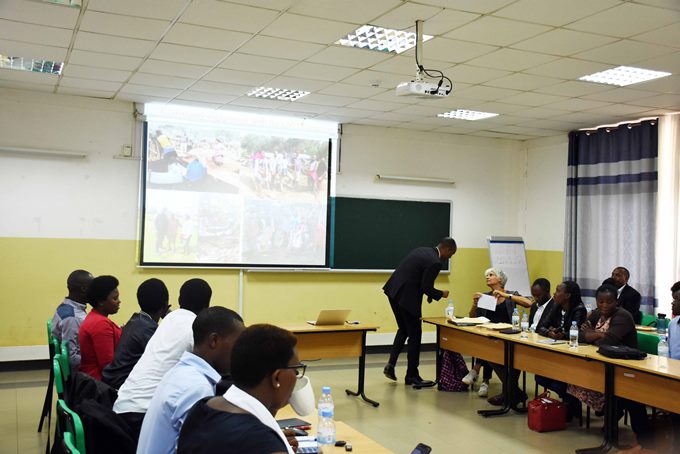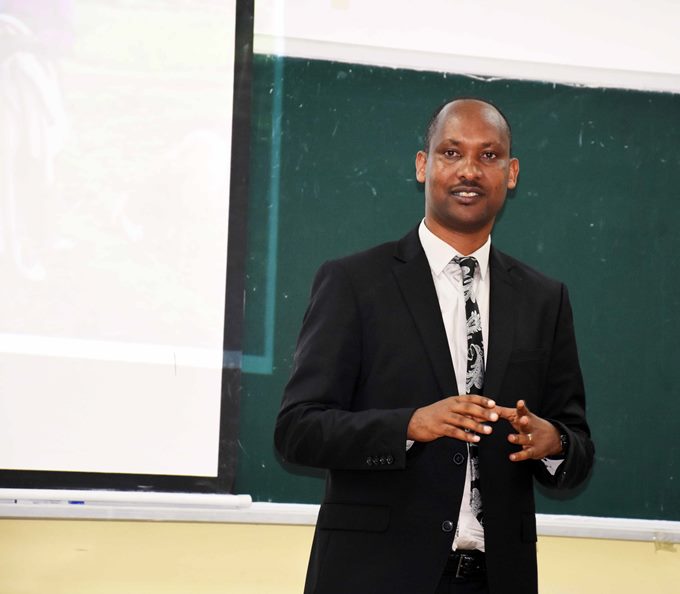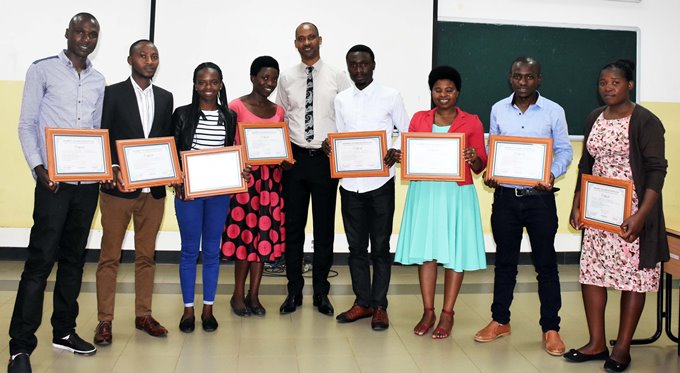A stakeholders’ seminar was organized by Engendering Rural Transformation for Sustainable Development-ENTRUST Subprogram. During the meeting, participants discussed benefits of involving the community in research with a view to figure out the kind of intervention needed to address gender issues and other factors affecting development. ENTRUST is among thirteen research clusters under UR-Sweden Programme partnership for 2019-2024 phase which aims contribute to broad-based national transformation through postgraduate research training and capacity development.

Participants in the seminar
While leading the seminar, Prof. Alfred Bizoza who is the ENTRUST Team leader noted that the rationale behind the seminar was among others to present to partners results from a pilot research exercise conducted in rural areas. This research was assisted by UR graduates dubbed “the Champions” under the University Village Initiative-UVI. The champions would go to different districts around the country and were able to profiling villages through data collection which would help policy makers to take informed decisions. According to Bizoza, the move is also enabling graduates to take part in changing the rural areas.

Prof Bizoza, Team leader of Engendering Rural Transformation for Sustainable Development-ENTRUST Subprogram
“UR is ensuring that the research and the teaching that we conduct are issue and challenge based” says Bizoza who is an Agricultural Economist and Policy Analyst and academic at the University of Rwanda-College of Agriculture, Animal Science and Veterinary Medicine UR-CAVM.
Speaking on the occasion, Prof Nelson Ijumba commended the inclusive research project which, according to him will challenge the common malpractice where self-proclaimed experts design and implement projects without prior consultation from beneficiaries’ needs and priorities. He stated that many projects fail because when they were designed beneficiaries were not involved.
“If you really want to help people, they must be part and parcel of the whole process right from the beginning” Said Ijumba who is the UR Deputy Vice Chancellor for Academic and Research. He added that the technique helps to boost ownership and project acceptance which ultimately assures sustainability.
In his remarks Raymond Ndikumana, the UR-Sweden Programme Coordinator noted that ENTRUST project is embedded in Rwanda national strategy for transformation in many different aspects. He informed that the project is among other 13 research training clusters for UR-Sweden partnership to ensure that higher education is well prepared to play a critical role to advance the country’s development agenda.

Prof Nelson Ijumba (L) and Raymond Ndikumana during the seminar
“One of the Programme mandate is to support the production of relevant research to transform the country mainly in rural areas” Ndikumana said, adding that the attachment with local communities makes ENTRUST subprogram instrumental in Program core mission to make immediate change through research for development.
Bunone Immaculée and Bernard Mwanafunzi are UR graduates who live in Musanze District. They witnessed that being The Champions helped them to know how to find problems of their local societies. They further said that they gained a lot on how to do research that aim at providing solutions to societal problems.

UVI Champions group photo with Prof Bizoza
ENTRUST is a joint programme being implemented by UR-CAVM in collaboration with the Swedish University of Agricultural Sciences (SLU)-Sweden. A part from conducting research and seminars, the Project is poised to train PhD candidates while supporting master’s students that are willing to do research. Through research, the project will ensure that the concept of gender is well understood in the context of national transformation touching various development patterns.